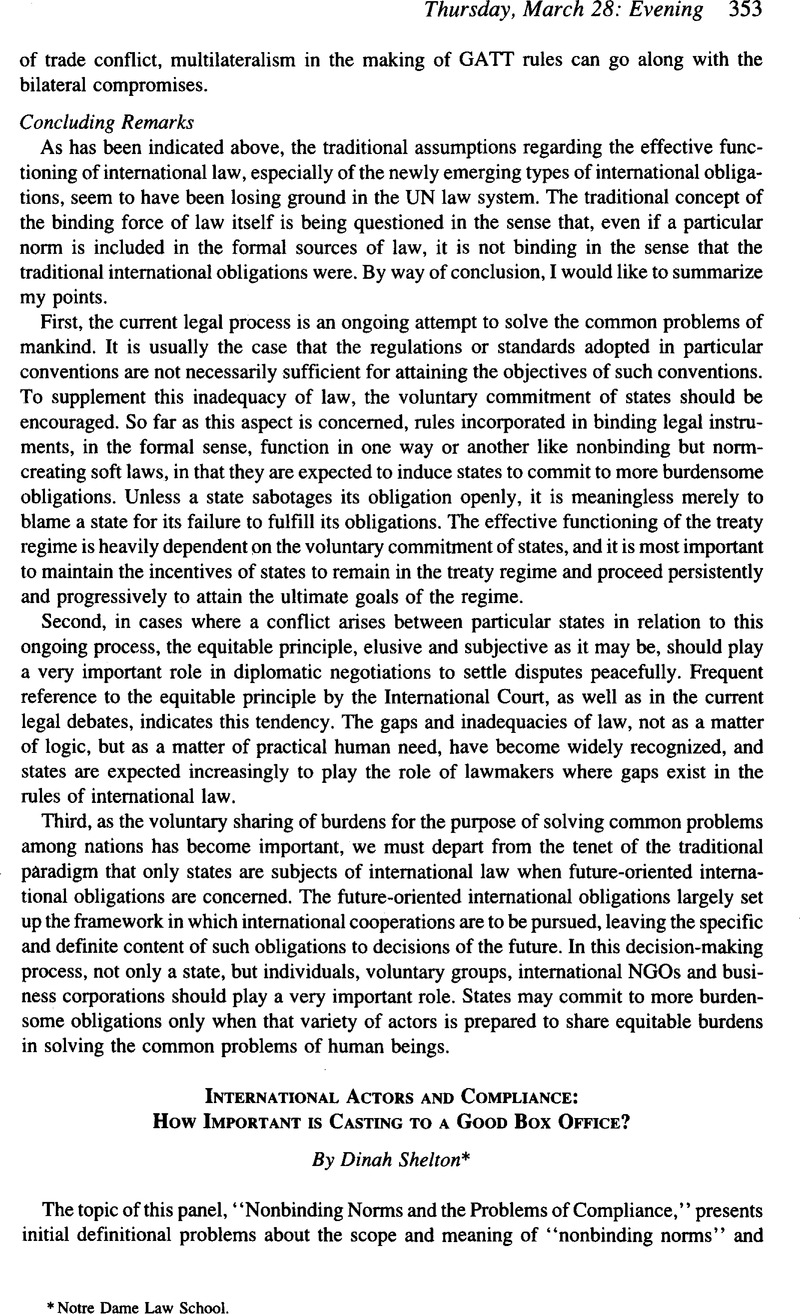No CrossRef data available.
Published online by Cambridge University Press: 17 February 2017

1 Agreement between the Government of the Republic of Namibia and the Government of the Republic of South Africa on the Establishment of a Permanent Water Commission, done at Noordoewer, September 14, 1992, reprinted in 32 ILM 1147 (1993).
2 Exec. Order No. 12,532, 50 Fed. Reg. 36,861 (1985).
3 The Valdez Principles were adopted by the Coalition for Environmentally Responsible Economies, a group of investors and environmental organizations. The intent was to create corporate self-governance “that will maintain business practices consistent with the goals of sustaining our fragile environment for future generations, within a culture that respects all life and honors its independence.“ See Pink, Daniel H., The Valdez Principles: Is What's Good for America Good for General Motors?, 8 Yale L. and Pol'y Rev. 180 (1990). See also Valerie Ann Zondorak, A New Face in Corporate Environmental Responsibility: The Valdez Principles, 18 B.C. Envtl. Aff. L. Rev. 457 (1991) Google Scholar.
4 249 UNTS 240.
5 823 UNTS 231.
6 UNESCO Constitution, 1945, Article IV(4) and VIII; discussed in UNESCO/CUA/68 of August 9, 1955, 3–4.
7 See Prott, Lyndel V. , The International Legal Protection of the Cultural Heritage, in Prinzipien des Kultur- guterschzes 295 (Fechner, F., Opperman, T. and Prott, L. eds., 1996) Google Scholar.
8 See, e.g., Guidelines for the Use of the Standard Form Concerning Request for Return or Restitution, UNESCO Doc. CC-86/WS/3.
9 UNESCO Declaration of the Principles of International Cultural Cooperation (1966).
10 Preliminary Study of the Advisability of Preparing an International Instrument for the Protection of the Underwater Cultural Heritage, UNESCO Doc. 28 C/39 of October 4, 1995, p. 4.